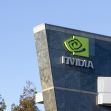The FTC has sued to block graphics card giant Nvidia from its proposed $40 billion acquisition of British chip design provider ARM Ltd.
The complaint comes after other tech leaders including Qualcomm, Microsoft, and Google voiced their concerns that such an acquisition would stifle competition in the industry.
ARM, which is owned by Softbank Group Corp, provides chip designs that it then licenses out to companies including Nvidia that use the design or a customized variation of the design to produce their own products. The deal which was first announced in September 2020 has prompted regulatory questions regarding whether or not the proposed acquisition would kill competitors in the industry. While Nvidia has arguably the largest hold in the graphics card sector, this acquisition would propel them into other sectors of next-generation technology.
In a statement that was shared with PG Gamer, the company contends that the deal would in fact not kill the competition, but promote it. "Nvidia will invest in Arm’s R&D, accelerate its roadmaps, and expand its offerings in ways that boost competition, create more opportunities for all ARM licensees and expand the ARM ecosystem," the statement reads. "Nvidia is committed to preserving ARM’s open licensing model and ensuring that its IP is available to all interested licensees, current and future.”
The FTC on the other hand shares a different sentiment. All four FTC commissioners voted against the acquisition due to regulatory concerns. The lawsuit which names Nvidia Corp., Arm Ltd., and Softbank Group Corp., explains that if the deal were to go through, the “proposed acquisition would allow the combined firm to use its control of ARM to harm Nvidia’s rivals in ways that substantially lessen competition —including innovation, price, and feature competition —in multiple markets.” The FTC has described ARM to be “the Switzerland” of the semiconductor industry and says a merger like this would threaten that equal playing field.
In a statement announcing the lawsuit, FTC Bureau of Competition Director Holly Vedova shares, “The FTC is suing to block the largest semiconductor chip merger in history to prevent a chip conglomerate from stifling the innovation pipeline for next-generation technologies.” The statement adds, “Tomorrow’s technologies depend on preserving today’s competitive, cutting-edge chip markets. This proposed deal would distort ARM’s incentives in chip markets and allow the combined firm to unfairly undermine Nvidia’s rivals. The FTC’s lawsuit should send a strong signal that we will act aggressively to protect our critical infrastructure markets from illegal vertical mergers that have far-reaching and damaging effects on future innovations.”
While some market analysts agree that such a move would dampen competition, others argue that with Nvidia’s growth, which has recently been fueled by the crypto market, a move like this is only natural as tech begins to enter the beginning stages of the Metaverse. Nvidia has been a leader in the video gaming industry and as virtual reality tech continues to dominate the landscape, Nvidia has shown that it will rise to the occasion.
Nvidia has since responded to the suit with a company spokesperson explaining, “As we move into this next step in the FTC process, we will continue to work to demonstrate that this transaction will benefit the industry and promote competition. Nvidia is committed to preserving Arm’s open licensing model and ensuring that its IP is available to all interested licensees, current and future.”
Along with U.S. regulators, the European Union and UK officials have voiced their concerns that the merger could threaten competition and even national security.






